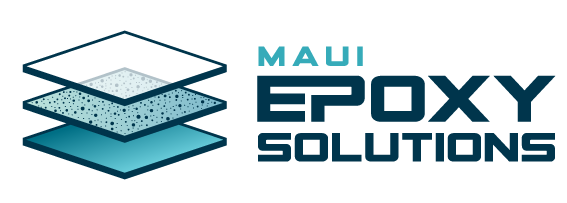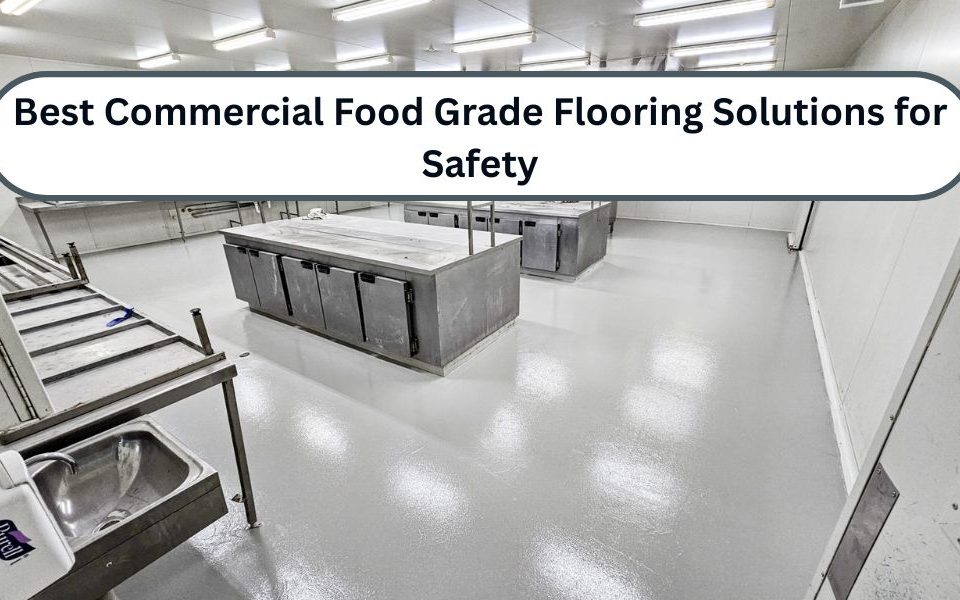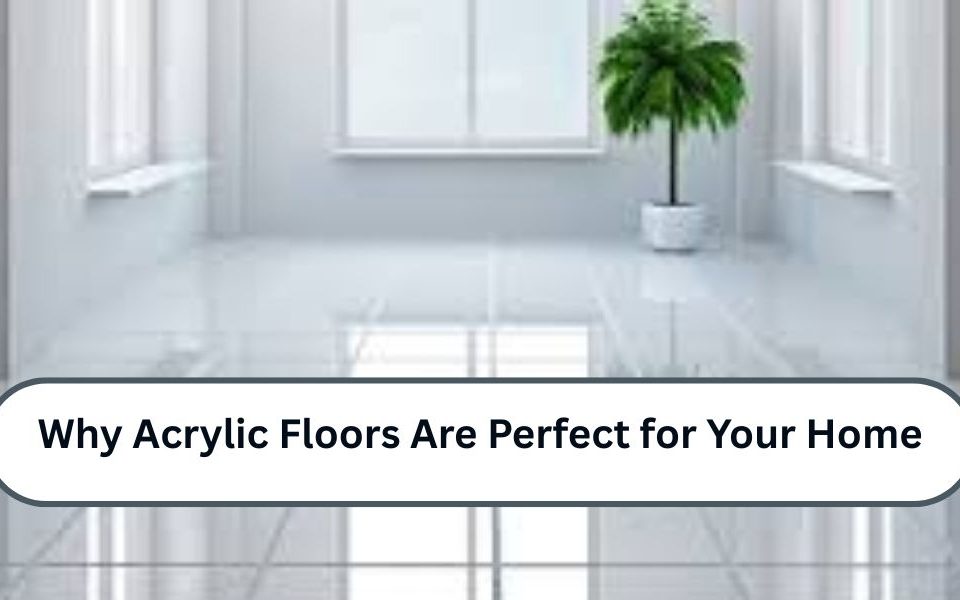
Epoxy Flooring vs. Traditional Flooring: Which is Better?
June 10, 2024
Epoxy Flooring Maintenance – Tips to Keep Your Floors Looking New
June 25, 2024Tired of dull, chipped concrete? Epoxy floor coating and painting services offer a revolutionary solution. This process involves applying a high-performance epoxy resin to your existing floor, creating a seamless, durable, and aesthetically pleasing surface.
The benefits of epoxy floors are numerous. They boast unmatched durability, withstanding heavy traffic, scratches, and chemical spills common in garages, basements, and industrial settings. Epoxy’s non-porous nature makes it easy to clean and resistant to stains, a boon for busy households and commercial kitchens. Additionally, epoxy provides excellent slip resistance, promoting safety in wet or oily environments.
The versatility of epoxy extends beyond functionality. With a wide range of colors and finishes available, you can customize your floor to match any décor, adding a touch of elegance to your residential space or a professional look to your commercial property. From high-traffic warehouses to personal workshops, epoxy floor coating offers a lasting and beautiful solution for a variety of applications!
Understanding Epoxy Floor Coatings And How it Works
Epoxy floor coatings are the result of a scientific marvel. They combine two key components: epoxy resin and a hardener. The resin acts as a binder, similar to glue, while the hardener initiates a chemical reaction that transforms the mixture into a rigid plastic material. This strong and durable plastic layer bonds exceptionally well to the underlying floor, creating a seamless and long-lasting finish.
However, not all epoxy floor coatings are created equal. Here’s a breakdown of the three main types:
1. Solvent-Based Epoxy: The traditional choice, solvent-based epoxies offer excellent chemical resistance and a fast cure time. However, the strong solvents emit unpleasant odors and require proper ventilation during application.
2. Water-Based Epoxy: A more environmentally friendly option, water-based epoxies have lower odor levels and easier cleanup. While they offer good performance, they may not be as durable as solvent-based options and might have slightly longer cure times.
3. 100% Solids Epoxy: These high-performance epoxies contain minimal volatile organic compounds (VOCs) and are ideal for areas with strict environmental regulations. They boast superior chemical resistance and durability but come at a higher cost and require a skilled professional for application.
Here is How You Can Choose the Right Type:
1. Solvent-based: Ideal for high-traffic areas with strong chemical exposure, prioritizing durability over odor concerns.
2. Water-based: Good choice for DIY projects or spaces where odor is a concern, with a slight trade-off in durability.
3. 100% Solids: Perfect for environmentally sensitive areas or demanding industrial applications requiring maximum performance.
Remember, consulting a professional can help you select the best epoxy type for your specific needs and priorities.
The Key Advantages of Epoxy Floor Coatings To Know
Epoxy floor coatings aren’t just about aesthetics; they offer a multitude of practical benefits that transform your floor into a reliable workhorse. Let’s delve deeper into the advantages that make epoxy such a popular choice:
1. Epoxy forms a rock-solid bond with the underlying floor, creating a surface that can withstand years of heavy traffic, impact, and abrasion. Say goodbye to chipped concrete or worn-out paint in high-traffic areas like garages, warehouses, or workshops.
2. Chemical resistance is another hallmark of epoxy. Unlike traditional paints that can be easily stained or damaged by harsh chemicals, epoxy forms a non-porous barrier that repels oil, grease, solvents, and other common contaminants. This makes it ideal for garages, workshops, or commercial kitchens.
3. Spills and accidents are inevitable, but with epoxy floors, cleanup becomes a breeze. The non-porous surface prevents stains from penetrating, allowing for easy removal with minimal effort. This translates to less time scrubbing and more time enjoying your beautiful floors.
4. Maintaining an epoxy floor is remarkably simple. Regular sweeping and mopping with a mild detergent is all you need to keep your floor looking its best. Unlike carpets or wood floors that require special cleaning products or techniques, epoxy offers a hassle-free experience.
5. Wet or oily environments can be treacherous. The superior slip resistance of epoxy floors minimizes the risk of accidents, making them ideal for garages, kitchens, or industrial settings.
Epoxy comes in a wide array of colors and finishes, allowing you to customize your floor to match any décor. Create a sleek and modern look in your garage, add a vibrant touch to your basement, or enhance the professional appearance of your commercial space. Also, epoxy floors are not just an upgrade, they’re an investment. The combination of durability, aesthetics, and ease of maintenance can increase the value of your property, making it a wise choice for homeowners and business owners alike.
When to Consider Epoxy Floor Coating – Knowing The Specific
Epoxy floor coating isn’t a one-size-fits-all solution, but for specific situations, it shines as the ultimate floor covering. Here’s when epoxy becomes your best bet:
1. High-Traffic Havens: Garages, warehouses, retail stores, and other high-traffic areas experience constant wear and tear. Epoxy’s exceptional durability makes it impervious to heavy foot traffic, dropped objects, and rolling carts, ensuring your floors look their best for years to come.
2. Taming the Automotive Terrain: Your garage floor endures a constant barrage of abuse – oil spills, dropped tools, and hot tires. Epoxy’s resistance to chemicals, stains, and heat makes it the perfect shield for your garage floor, simplifying cleanup and protecting the concrete beneath.
3. Basement Transformations: Basements often become dumping grounds, but epoxy can transform them into functional and beautiful spaces. The moisture-resistant properties (of some types) and ease of maintenance make it ideal for playrooms, workshops, or even home gyms.
4. Workshop Warriors: Workshops demand a floor that can take a beating. Epoxy’s resistance to chemicals, spills, and impacts makes it perfect for withstanding dropped tools, paint splatters, and the general wear and tear that comes with any workshop activity.
While epoxy offers incredible benefits, it’s essential to understand its limitations:
1. Uneven Floors: Epoxy requires a smooth and level surface for proper adhesion. Uneven floors might require significant prep work or may not be suitable for epoxy application.
2. Constant Moisture Exposure: While some epoxy types offer moisture resistance, they are not ideal for areas with constant water exposure like pool decks or constantly damp basements. In such cases, alternative waterproofing solutions might be necessary.
If you’re unsure whether epoxy is the right choice for your specific needs, consulting a professional contractor can provide valuable guidance and ensure a successful outcome for your project.
Painting vs. Epoxy Coating To Transform Your Floor’s Appearance
While both painting and epoxy coating can transform your floor’s appearance, they offer vastly different functionalities. Understanding the key differences is crucial for making the right choice for your project.
1. Painting the Town (Floor): Traditional floor paint creates a decorative layer, but it’s primarily focused on aesthetics. Paint forms a thin film on the surface and offers minimal protection against scratches, chemicals, or heavy traffic. Over time, paint can chip, peel, or wear away, revealing the underlying floor beneath.
2. Epoxy Enters the Ring: Epoxy floor coating, on the other hand, is a heavyweight champion. It’s a two-part system combining a resin and a hardener that chemically reacts to form a tough, plastic-like layer. Unlike paint, epoxy bonds deeply with the floor, creating a seamless and incredibly durable surface.
For a purely aesthetic upgrade, paint might suffice. But, if you prioritize durability, functionality, and long-lasting performance for your floors, epoxy coating is the clear victor. Its superior resistance to wear, tear, and chemicals makes it a wise investment that will keep your floors looking their best for years to come.
Outlining The Epoxy Floor Coating and Painting Process
Transforming your floor with epoxy coating involves a meticulous process, but the stunning results are well worth the effort. Here’s a breakdown of the typical steps involved:
The foundation of a successful epoxy application lies in surface preparation. This crucial step involves thoroughly cleaning the floor to remove dirt, grease, and any existing coatings. Depending on the condition, grinding the surface with a diamond grinder might be necessary to create a rough texture for optimal epoxy adhesion. Cracks and imperfections are filled with epoxy patching compound to ensure a smooth and level surface. Remember, proper preparation ensures the epoxy bonds strongly to the floor, preventing peeling or cracking in the future.
Once the surface is prepped, a coat of epoxy primer is applied. This primer acts as a bridge, promoting better adhesion between the concrete and the epoxy coating. After the primer dries, the real magic begins with the application of the epoxy base coat. This pigmented layer forms the foundation of your new floor and comes in a variety of colors to match your desired aesthetic. The base coat is typically applied in thin layers using a roller or squeegee to ensure a uniform finish.
For an extra decorative touch, some projects incorporate color chips. These colored flakes are sprinkled onto the wet base coat, creating a unique and vibrant finish. After the base coat and color chips (if used) have cured, a final layer of epoxy topcoat is applied. This topcoat seals the floor, enhancing its durability, shine, and resistance to chemicals and stains.
Throughout the process, meticulous attention is paid to drying times between each step. Following the manufacturer’s recommended drying times ensures the epoxy cures properly, maximizing its performance and longevity. While the basic steps remain consistent, professional contractors may adjust the process depending on the specific type of epoxy used and the desired final look.
Choosing a Professional Epoxy Floor Coating and Painting Service
Investing in professional epoxy floor coating ensures a high-quality, long-lasting result. However, navigating the world of contractors can be daunting. Here are some key pointers to help you choose the right professional for the job!
Seek a contractor with a proven track record in epoxy floor coating. Look for companies with several years of experience and a portfolio showcasing their work on projects similar to yours. Experienced contractors have encountered various challenges and possess the expertise to handle any unforeseen situations during your project.
Ensure the contractor carries proper liability and worker’s compensation insurance. This protects you from any financial repercussions in case of accidents or property damage during the project.
Don’t hesitate to ask for references from past clients. Reach out to these references and inquire about their experience with the contractor, the quality of work, and overall customer service. Positive feedback from previous clients is a strong indicator of the contractor’s reliability and performance.
A reputable contractor will offer a warranty on their work. The warranty should cover the materials and labor for a specified period, typically ranging from one to three years. A warranty demonstrates the contractor’s confidence in their work and provides you with peace of mind.
Cost Considerations:
The final cost of your epoxy floor coating project depends on several factors:
1. Size of the Area: The square footage of the floor significantly impacts the overall cost. Larger areas naturally require more materials and labor, increasing the price.
2. Chosen Epoxy Type: The type of epoxy used plays a crucial role. Solvent-based epoxies tend to be more affordable, while 100% solids epoxies are pricier due to their premium performance and environmental benefits.
3. Project Complexity: Additional factors like surface repairs, intricate designs, or color chip application can increase the overall cost due to the additional time and materials involved.
While providing a specific cost range is difficult due to these variations, epoxy floor coating typically falls between $3 and $8 per square foot. It’s always best to obtain quotes from several qualified contractors to compare pricing and services offered. Remember, the cheapest option isn’t always the best. Choose a contractor who offers a competitive price, proven quality, and a warranty that provides peace of mind.
Conclusion – Epoxy Floor Coating and Painting Services
This comprehensive guide has explored the world of epoxy floor coating and painting services. We’ve discussed the numerous benefits of epoxy, from its exceptional durability and chemical resistance to its ease of maintenance and aesthetic versatility. Epoxy floor coating isn’t just about aesthetics; it’s an investment that transforms your floor into a reliable and beautiful surface. Whether you’re looking to upgrade your garage, basement, workshop, or commercial space, epoxy offers a long-lasting solution that outperforms traditional paint in every aspect.
Contact Mauie Poxy Solutions a reputable epoxy floor coating contractor today! We provide a free consultation, discuss your specific needs, and offer a quote for transforming your space with the beauty and functionality of epoxy floors!




